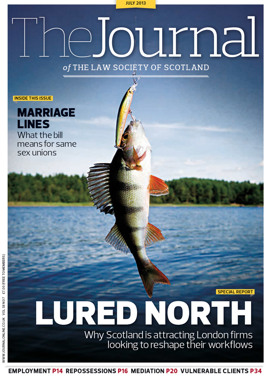Behind all the fun
With a record-breaking Rock Ness over, quickly followed by Glastonbury and T in the Park, and the Edinburgh Festival Fringe just round the corner, festival season is well underway. It is perhaps no great surprise that the focus of these events is on the headline attractions, not on logistical, legal or regulatory challenges. However (like so many things in life), serious planning and risk management goes into delivering the entertainment at such mass participation events.
Every major festival or event needs to tie down its arrangements for use of venues well in advance. This will generally involve venue use agreements governing period of use, commissioning and decommissioning of equipment, branding and licensing arrangements (e.g. for the sale of alcohol). There will also be provisions apportioning risk and liability between the parties, for example in relation to health and safety and property damage. Additional issues, such as environmental considerations, may arise where agricultural land is used.
Tickets and terms
Ticketing has also become more complex in the internet/smartphone era. More traditional risks of printed counterfeit tickets and ticket touting have been exacerbated by unofficial websites selling both genuine and counterfeit tickets and, more recently, the availability of e-ticketing mobile technologies (although such technologies can of course present potential solutions to aid in the fight against counterfeiting, such as RFID tagging and encryption). Event organisers often work closely with Trading Standards to identify counterfeiters. There may also be contracts with third parties, like ticketing agents (such as Ticketmaster) to consider.
Contracts will also regulate the rights of performers/agents and individual festival-goers. In the case of the latter, this will likely take the form of the terms and conditions which apply to the purchase of the ticket. These Ts & Cs are likely to, among other things, dictate circumstances where the purchaser may be due a refund. Such circumstances can vary by event but would typically include event cancellation – weather-related or otherwise – and performer “no-shows” (though often one “no show” in a multi-set festival will not be enough). Other conditions may be attached to admission, or an ability for the organisers to eject individuals (e.g. for substance abuse, or ambush marketing).
As event organisers will be dealing with individuals in their capacity as consumers, the law will provide additional protection for the individual. To ensure that the terms are enforceable, it is important for organisers to ensure they are accessible, clearly expressed and reasonable, and that they contain certain specific minimum protections for the consumer.
A range of insurance cover is also likely to be in place: from public liability cover applying in instances of personal injury (where the law would not permit the exclusion or limitation of liability where such injury was caused by the organiser’s negligence), to full event cancellation insurance, although the latter can sometimes be prohibitively expensive for organisers to carry.
IP rights
Most major festivals now have commercial sponsors, so consideration must be given to concluding sponsorship agreements which set out the sponsorship fee and clarify the corresponding sponsorship rights. This might include venue branding (although care needs to be taken to ensure no clash with existing branding arrangements the venue owner has in place), and complimentary ticketing packages. Although a greater risk for major sporting events (infamous examples include Linford Christie's Puma contact lenses at the 1996 Olympics), ambush marketing can also be a risk for organisers of other types of events including music and arts festivals.
On the theme of intellectual property, event organisers (particularly for larger events) will be mindful of the need to protect and exploit their rights, which might include registering trade marks relating to the event name or theme, and securing copyright in event photographs, footage, programmes and other materials. Exploitation may include entering into merchandising agreements and licence agreements for the broadcasting of footage on television.
These are just some of the legal challenges facing festival organisers in the modern live entertainment era, and that is before you factor in compliance with advertising standards, collecting society licensing (PRS and PPL), staff and support contracts (and associated employment law issues), data protection compliance, and dealings with concessions, to name but a few other areas. So, thorough legal preparation is almost an event in itself - but without the rock and roll!
In this issue
- Credit hire: back to basics
- You know who I mean
- Behind all the fun
- Your Future in Law
- Reading for pleasure
- Opinion column: Cameron Fyfe
- Book reviews
- Profile
- President's column
- Mapping out the Crofting Register
- Back office bait
- Another bite at the cherry
- Security of your home
- Marriage redefined
- Building better business cultures
- Keeping a rein on child cases
- Minimum gain
- Beware LLP tax changes
- Framework remodelled
- Scottish Solicitors' Discipline Tribunal
- A Scottish ILG chair in New York
- Beneath the surface
- Being alert to the needs of the vulnerable
- Sins of our leaders
- How not to win business: a guide for professionals
- Litigation: a tight ship?
- Ask Ash
- Why sep rep?
- From the Brussels office
- Law reform roundup
- Diary of an innocent in-houser






